Colombia will elect a new president in 2022 and the political campaign has already started. However, the debate so far has focused on personal attacks and black propaganda, leaving aside the essential discussion about the development model we need for poverty alleviation and inequality reduction. In this article, Luis Eduardo Gutiérrez Rojas considers one of the main arguments of some right-wing political sectors against a potential democratic left government in Colombia.
In 2018 the official propaganda of one of the most powerful political sectors was the popularisation of the term Castrochavismo (a play on words between Castrism, from the Cuban dictator Fidel Castro, and Chavism from the former Venezuelan president Hugo Chávez). With this invented pseudo-political doctrine, this sector sold the idea to Colombian citizens that a potential leftist government, led by the former guerrilla fighter Gustavo Petro, would turn the country into a second Venezuela, experiencing hyperinflation, increasing poverty, food insecurity, macroeconomic instability, etc. Such discourse was well-received for a sector of Colombian society that saw a reflection of Nicolás Maduro in the politician, especially because of his previous closeness to Hugo Chávez.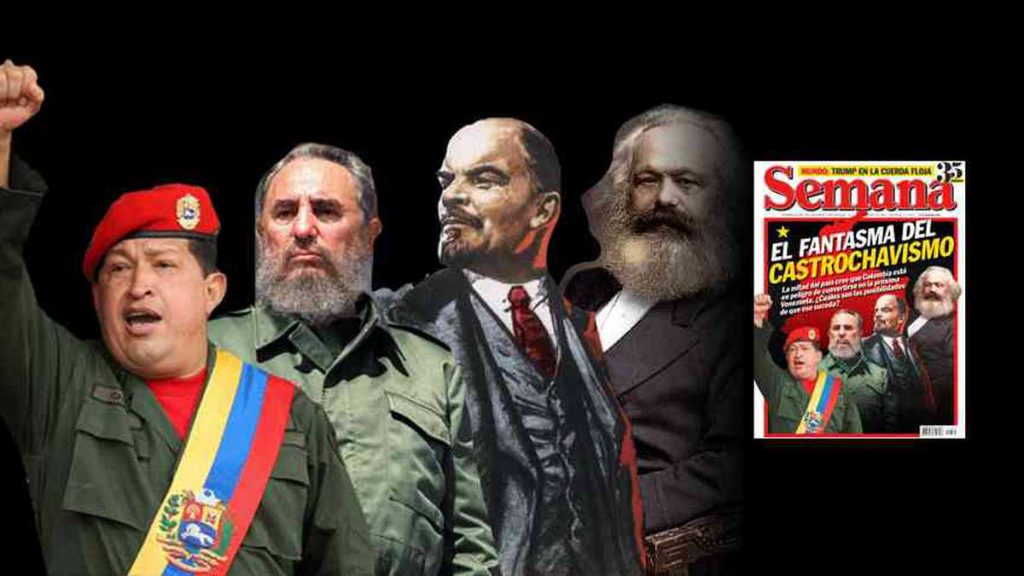
For the upcoming elections in 2022, where Colombians will elect a new president and a new Congress, the strategy is similar with subtle changes using the slogan Ojo con el 2022 (‘Careful with 2022’ ). The strategy behind it is pretty much the same, creating an atmosphere of uncertainty about a potential leftist government and a possible economic downturn as a plausible consequence. In this article, I will dig into this issue and assess the real possibility of Colombia becoming a second Venezuela based on three variables: institutional framework, economic structure, and common sense.
Institutional framework
Despite Colombia being considered a Flawed Democracy by the Democracy Index created by The Economist Intelligence Unit (which indicates several weaknesses in important criteria such as political participation, transparency, governance, or institutions1), the country avoided backslides or breakdowns similar to Venezuela in the twentieth century. This aspect is significant because dictatorships or authoritarian regimes leave a complex footprint that is challenging to erase. Take the example of Russia, where Vladimir Putin governs as a Communist Party General Secretary or the Brazilian case where Jair Messias Bolsonaro won the election by making an apology to the military dictatorship. Therefore, although weak, the Colombian institutional framework has the power to prevent a potential authoritarian regime, demonstrated in when a second presidential re-election was blocked in 2010.
Additionally, a large Congress (108 senators and 172 representatives), opposition political parties that have been strengthened after several reforms from 2003 onwards, and an autonomous judicial power are other elements that play a role in the equation. On the one hand, due to the proportional system, different political ideologies and trends can have representation in the legislative power. On the other hand, the Constitutional Court has demonstrated itself to be a counterpower to several authoritarian measures that some former presidents tried to impose.
Economic structure
Colombia does not have the massive wealth that Venezuela gained thanks to the revenues from oil exports. This situation has two implications: first, there is not enough money for funding a massive social policy (as happened in Venezuela) that created a paternalistic relationship between the State and its citizens. Second, the absence of large oil reserves profoundly impacts the economic structure. Due to this, the Venezuelan economy became highly dependent on oil exports and this, in the long run, destroyed its productive capacity. By contrast, Colombia has a greater economic diversity, with more complex industries and stronger both backward and forward linkages.
According to the Harvard Economic Complexity Index, Colombia is an even more complex economy than Chile or Argentina, and it is the second largest economy in South America. For Venezuela, oil exports represent 83,62% of the total exports, whereas Colombia’s percentage is 30%. The chemical industry, transport, tourism, financial services, and agriculture are vital in the Colombian economy. Having a better economic complexity empowers different social and economic groups which will end up promoting the decentralisation of political power, social control, and accountability. One can argue that this is an anachronistic comparison due to the differences between current Venezuela and the 1999 Venezuela when Hugo Chávez was elected, but the landscape is quite similar, with a remarkable dependence on oil exports and an extremely low complexity according to the same index.
The oil’s revenues provoked severe damage to the Venezuelan economy, creating a Dutch disease2 that has deteriorated the country’s productive capacity. The impact has been so massive that some analysts have coined the term Venezuelan disease in order to refer to the uncontrolled increase of foreign currency that impacted other sectors of the economic structure. Although Colombia relies on oil’s revenues for public investments, its more extensive complexity can provide a better capacity for resilience and adaptation.
Common sense
Finally, the most straightforward answer comes from common sense. Nobody can predict the future, regardless of any seemingly reliable mathematical model or algorithm. Castrochavism and Ojo con el 2022 are just two slogans created by political sectors that want to deviate from the real debate of the model of development we want for our country. Several questions remain for future presidential debates: Is financial and economic liberalisation the path for poverty alleviation or inequality reduction? Should we increase tariffs or reduce them if we want to boost our industrial sector? What lessons will we learn from the COVID-19 pandemic as a society? How are we going to defeat corruption? These should be the core issues discussed and analysed in the current political debate, however, the agenda has been dominated by personal attacks and black propaganda.
The views expressed in this post are those of the author and in no way reflect those of the International Development LSE blog or the London School of Economics and Political Science.
Image credits: Main Image of presidential candidate Gustavo Petro via Bloomberg; ‘Castrochavismo’ image via Semana magazine; ‘Ojo con el 2022’ image via Kienke.com.


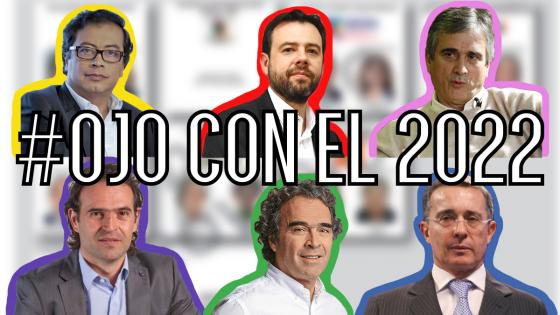

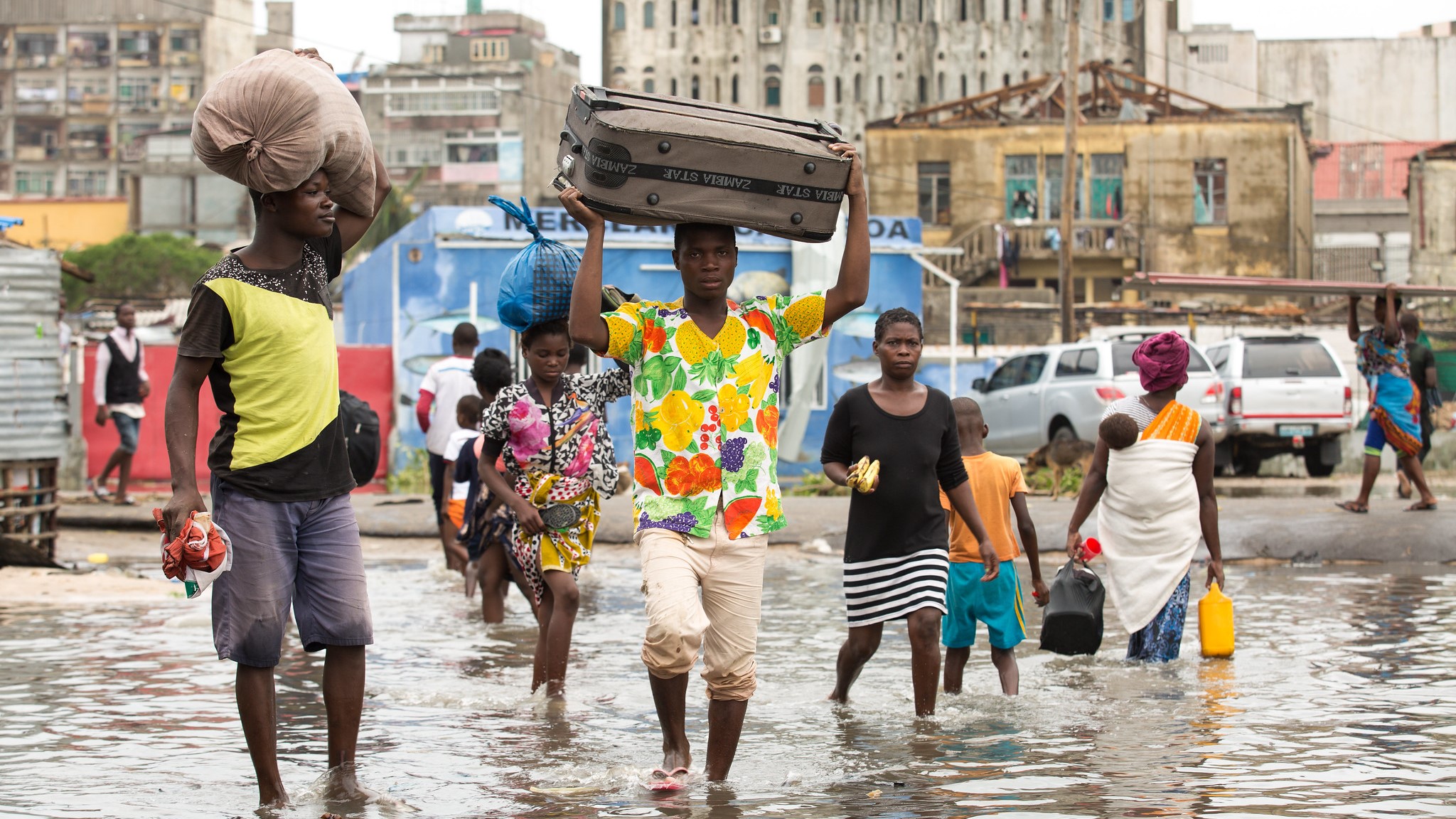
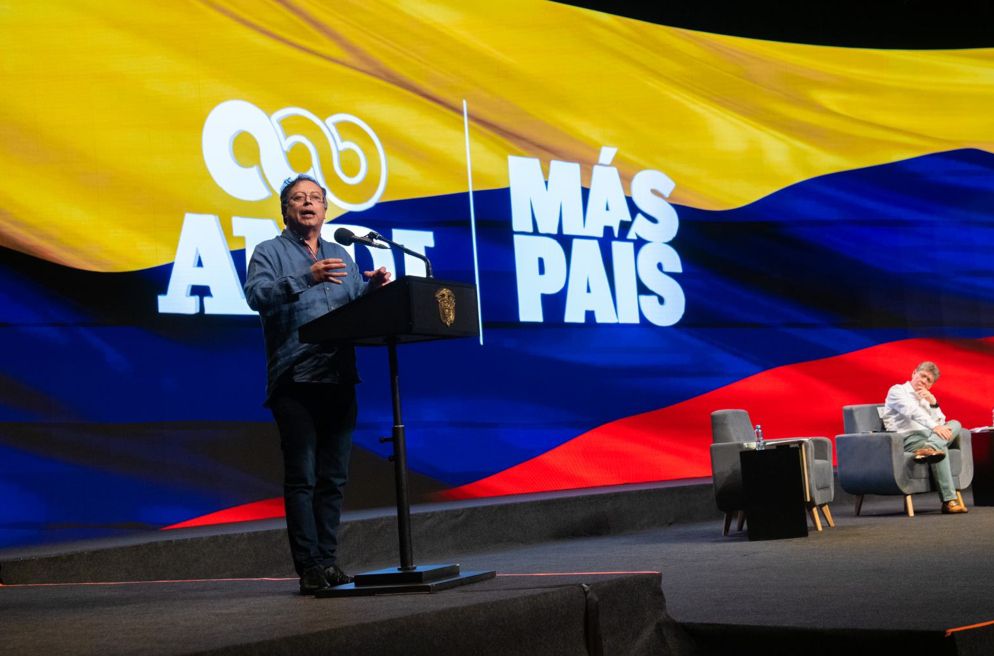
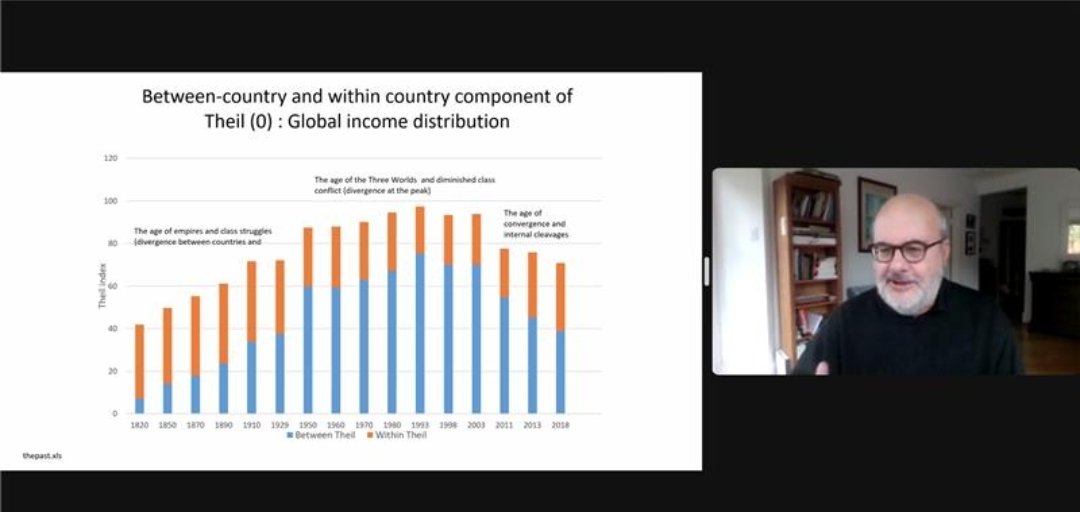
A very insightful article. As a Colombian, it hurts me to see how many people are oblivious to the pillars of democracy and only focus on appearances. Personally, I think is the lack of education of most voters that has made democracy a “joke” in Colombia. Just like George Orwell said “Ignorance is Strength”. Educating people about how democracy works is the only solution to achieve a positive change in the country.